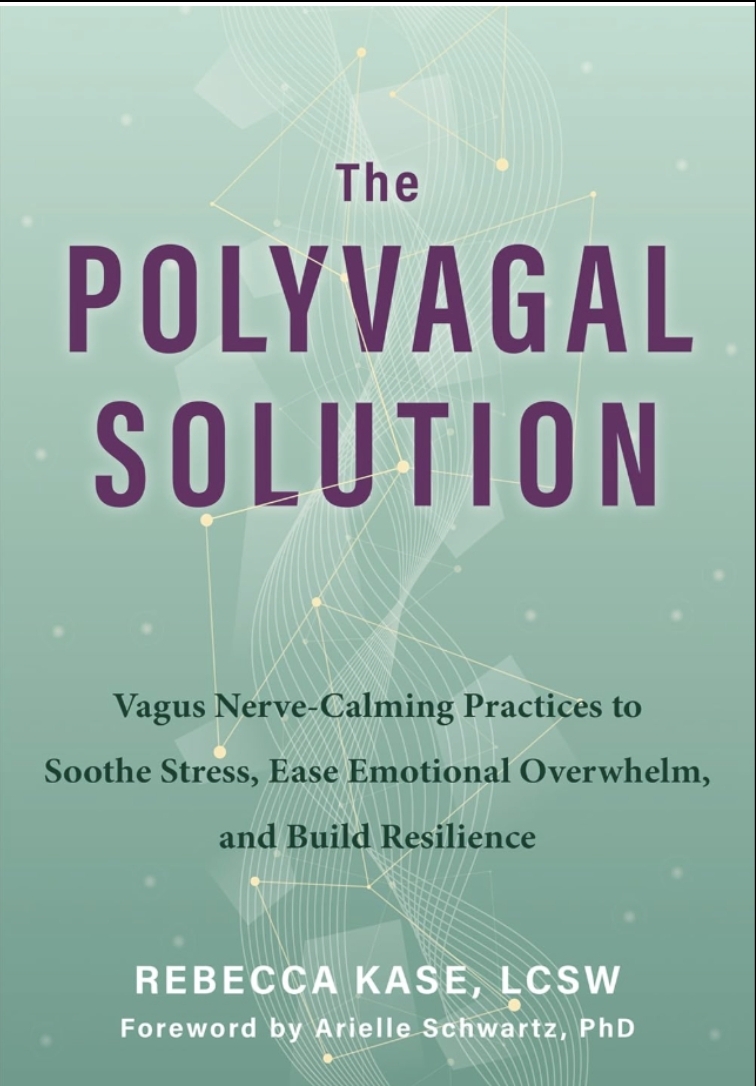Lifestyle
Cookbook Author Erika Schlick Helps you Find Your Perfect Diet

Society has created a set of specific beauty standards every woman should live by. You are supposed to weigh a specific number, wear your hair a certain way, do your makeup following the latest trends, and so on. But the truth is those terms and conditions we did not sign up for can be significantly harmful to our bodies, minds, and souls. That is why many advocates have raised their voices and spoken up about this issue. They are the ones trying to motivate individuals to take care of themselves both mentally and physically.
One way women are being encouraged to dive into self-care is by choosing diets that adapt to their health needs, goals, and lifestyles. However, finding the perfect diet can be a challenging process. One of the reasons for this is that there are one too many options out there for you to choose from. But you might also be dealing with dietary restrictions that limit your options. Whatever the case may be, Cookbook Author Erika Schlick offers insight on how to find the perfect diet for your body.
A few years back, Schlick was diagnosed with Lyme disease and other autoimmune conditions, including Alopecia, Celiac disease, Hashimoto’s, and Psoriasis. Because she did not want to be on antibiotics and deal with side effects, she took a more organic route that involved changing her diet completely. This journey led her to write her cookbook: Wandering Palate: 28 Days of Meals Gluten-Free, Dairy-Free & Paleo.
Her personal experience pushed Erika Schlick to become a Health Coach who works with individuals who are struggling like she was. One of the things she coaches them on—and which she has discussed on her blog, The Trail to Health—is how to find your perfect diet. According to Ms. Schlick, there are six different ways in which an individual can find a diet that works for them.
- Elimination Diet: “An elimination diet is a process of removing certain food groups from your diet at a time. After 2-3 weeks of elimination, you reintroduce the food to see how your body reacts. If you experience allergies like bloating, nausea, headaches, or fatigue, it’s likely you are allergic to this food group.”
- Micronutrient Testing: “Micronutrient testing analyzes your levels of vitamins, minerals, amino acids, and antioxidants to discover what’s missing. With these results, you can create a nutritional plan to ensure you’re getting all the vital nutrients your body needs to operate optimally.”
- Ixcela Gut Test: “Ixcela is a super easy and effective at-home microbiome test kit that tests all the metabolites in the gut. The test is a simple pin-prick that analyzes the microbiome and creates personalized nutrition and wellness plans to improve your health and quality of life.”
- Viome Gut Test: “The Viome gut test helps you discover exactly what your body needs to function its best. This test gives you scores, as well as a nutritional roadmap to guide you toward your perfect diet, based on your body’s individual needs.”
- Genoplate DNA Test: “The Genopalate DNA test dives into your specific DNA and customizes a nutritional plan based on your genetics. The goal is to ‘eat for your genes,’ because each of us has biochemical activity rooted in our family genealogy.”
- Everlywell Food Sensitivity Test: “It’s not just about knowing what foods make us feel good, but also what foods make us feel really, really bad. Connecting the dots between symptoms and food allergies is an exhausting process to do on your own. That’s why I recommend the Everlywell home test, which tests you for food sensitivities. It analyzes your body’s immune response to almost 100 common food allergens. Once you receive your results, you can see which foods to eliminate from your diet.”
If you are struggling to figure out which diet would work best for you, it might be time to try one of Erika Schlick’s suggestions. Every piece of advice given by her comes from her personal experience with dietary restrictions and changes and her professional journey. As a Cookbook Author, she has a better understanding of food and how it affects or benefits our body. It might be time you take a closer look at your diet and decide what is best for you.
Lifestyle
The Missing Piece in Self-Help? Why This Book is Changing the Wellness Game

Self-help shelves are full of advice — some of it helpful, some of it recycled, and most of it focused on “mindset.” But Rebecca Kase, LCSW and founder of the Trauma Therapist Institute, is offering something different: a science-backed, body-first approach that explains why so many people feel struck, overwhelmed, or burned out — and what they can actually do about it.
A seasoned therapist and business leader, Kase has spent nearly two decades teaching others how to navigate life through the lens of the nervous system. Her newest book, “The Polyvagal Solution,” set to release in May 2025, aims to shake up the wellness space by shifting the focus away from willpower and onto biology. If success has felt out of reach — or if healing has always seemed like a vague concept — this book may be the missing link.
A new way to understand stress and healing
At the heart of Kase’s approach is polyvagal theory, a neuroscience-based framework that helps explain how our bodies respond to safety and threat. Developed by Dr. Stephen Porges, polyvagal theory has transformed the way many therapists understand trauma, but Kase is bringing this knowledge to a much wider audience.
“The body always tells the truth,” Kase says. “If you’re anxious, exhausted, or always in overdrive, your nervous system is asking for support, not more discipline.”
“The Polyvagal Solution” makes this complex theory digestible and actionable. Instead of promising quick fixes, Kase offers strategies for regulating the nervous system over time, including breathwork, movement, boundaries, and daily practices that better align with how the human body functions. It’s less about pushing through discomfort and more about learning to tune in to what the body needs.
From clinical expertise to business insight
What sets Kase apart isn’t just her deep understanding of trauma but how she blends that knowledge with real-world experience as a business owner and leader. As the founder of the Trauma Therapist Institute, she scaled her work into a thriving company, all while staying rooted in the values she teaches.
Kase has coached therapists, executives, and entrepreneurs who struggle with burnout, anxiety, or feeling disconnected from their work. Regardless of who she works with, though, her message remains consistent: the problem isn’t always mindset — it’s often regulation.
“Success that drains you isn’t success. It’s survival mode in disguise,” Kase explains. Her coaching programs go beyond traditional leadership training by teaching high achievers how to calm their nervous systems, enabling them to lead from a grounded place, not just grit.
Making the science personal
For all her clinical knowledge, Kase keeps things human. Her work doesn’t sound like a lecture but rather like a conversation with someone who gets it. That’s because she’s been through it herself: the long hours as a therapist, the emotional toll of supporting others, the realities of building a business while managing her own well-being.
That lived experience informs everything she does. Whether she’s speaking on stage, running a retreat, or sharing an anecdote on her podcast, Kase has a way of weaving humor and honesty into even the heaviest topics. Her ability to balance evidence-based practice with practical advice is part of what makes her voice so compelling.
Kase’s previous book, “Polyvagal-Informed EMDR,” earned respect from clinicians across the country. But “The Polyvagal Solution” reaches beyond the therapy community to anyone ready to understand how their body is shaping their behavior and how to create real, sustainable change.
Why this message matters
We’re in a moment where burnout is common and overwhelm feels normal. People are looking for answers, but many of the tools out there don’t address the deeper cause of those feelings.
That’s where Kase’s work lands differently. Instead of telling people to “think positive” or “try harder,” she teaches them how to regulate their own biology. And in doing so, she opens the door for deeper connection, better decision-making, and more energy for the things that matter.
As more workplaces begin to embrace trauma-informed leadership, more individuals are seeking solutions that go beyond talk therapy and motivational content. Kase meets that need with clarity, compassion, and a toolkit rooted in both science and humanity.
A grounded approach to lasting change
What makes “The Polyvagal Solution” stand out is its realism. It doesn’t ask readers to overhaul their lives but instead asks them to listen — to pay attention to how their bodies feel, how their stress patterns manifest, and how even small shifts in awareness can lead to significant results over time. Whether you’re a therapist, a team leader, or someone trying to feel more at ease in your own skin, this book offers a way forward that feels both grounded and achievable.
Rebecca Kase isn’t just adding another title to the self-help genre. She’s redefining it by reminding us that we don’t have to muscle our way through life. We just have to learn how to work with, not against, ourselves.
And maybe that’s the real game-changer we’ve been waiting for.
-

 Tech4 years ago
Tech4 years agoEffuel Reviews (2021) – Effuel ECO OBD2 Saves Fuel, and Reduce Gas Cost? Effuel Customer Reviews
-

 Tech6 years ago
Tech6 years agoBosch Power Tools India Launches ‘Cordless Matlab Bosch’ Campaign to Demonstrate the Power of Cordless
-

 Lifestyle6 years ago
Lifestyle6 years agoCatholic Cases App brings Church’s Moral Teachings to Androids and iPhones
-

 Lifestyle4 years ago
Lifestyle4 years agoEast Side Hype x Billionaire Boys Club. Hottest New Streetwear Releases in Utah.
-

 Tech7 years ago
Tech7 years agoCloud Buyers & Investors to Profit in the Future
-

 Lifestyle5 years ago
Lifestyle5 years agoThe Midas of Cosmetic Dermatology: Dr. Simon Ourian
-

 Health6 years ago
Health6 years agoCBDistillery Review: Is it a scam?
-

 Entertainment6 years ago
Entertainment6 years agoAvengers Endgame now Available on 123Movies for Download & Streaming for Free
